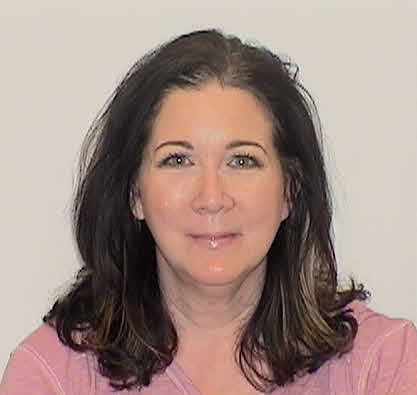Exploring the history of our MS in Clinical Psychopharmacology.
The California School of Professional Psychology (CSPP) and its faculty have been instrumental leaders in training licensed psychologists to prescribe psychotropic medications safely and effectively in states and federal jurisdictions where they have prescriptive authority. We recently spoke with MS in Clinical Psychopharmacology (MSCP) professor and program director, Dr. George Kapalka, to gain valuable insight on how CSPP has “been in the prescriptive authority movement since ground zero”.1
Prescriptive authority has traditionally been restricted to primary care providers and psychiatrists who possess a medical degree. According to the American Psychological Association (APA), the prescriptive authority movement is a reaction to the growing public need for mental health services, particularly in under-resourced areas where patients have little or no access to psychiatrists. In states where RxP legislation has been passed, psychologists who seek prescriptive authority must possess a doctoral degree (PhD or PsyD), a license to practice independently, and completion of an MS in clinical psychopharmacology (MSCP) degree or equivalent.
The first bill seeking to authorize prescription privileges to psychologists was introduced in Hawaii in 1985. The bill would have allowed licensed psychologists in that state to administer and prescribe psychotropic medication for the treatment of nervous, mental, and organic brain disorders. Currently, psychologists may prescribe in the U.S. territory of Guam (starting in 1999) and seven states: New Mexico (2002), Louisiana (2004), Illinois (2014), Iowa (2016), Idaho (2017), Colorado (2023), and Utah (2024), as well as the Public Health Service, the Indian Health Service, and the U.S. military. Many other states have introduced but not yet approved RxP bills.
There are currently six APA-designated programs in psychopharmacology but CSPP was the first school in the country to establish an MS in Clinical Psychopharmacology (MSCP) in 1998, even before there was APA designation criteria for these programs. As soon as these designation criteria were created, CSPP was the first to obtain that and has continuously maintained its APA designation ever since.
The catalyst for founding the MSCP program at CSPP came from Louisiana, which was one of two states preparing to pass prescriptive authority. At that time, there were no master’s degrees in clinical psychopharmacology anywhere in the country. CSPP was already a visible presence in the prescriptive authority movement and so the group of Louisiana psychologists who were organizing this legislation approached Alliant for help. They essentially asked if Alliant would be willing to develop an MSCP program that their students in Louisiana could take to become licensed clinical psychopharmacologists in Louisiana should the law pass, which it eventually did in 2004.
Dr. Kapalka noted that our MSCP program has always been offered entirely online but what makes it unique is its structure which is two-thirds live instruction compared to our competitors, many of whom do entirely asynchronous learning. The MSCP program runs eight-week terms where class meets once a week (either Saturdays or Sundays), and five of the eight weeks are live. The other three weeks are done by prerecorded lectures. While some of our competitors do offer live programs, they require some residencies that their students must complete in person.
“From my point of view, when you're teaching very complex medical information, a fully asynchronous program is a drawback. We offer so much more live instruction via Zoom which can be particularly helpful for practicing psychologists and doctoral psychology students who don't have strong medical backgrounds,” said Dr. Kapalka.
The live MSCP program at CSPP also offers better faculty support and more opportunities for advice and guidance on managing difficult cases. Case presentations are a regular part of the activities in every course and often come from the actual caseloads of the students, so being able to interact live with the professor provides a significant advantage over completely asynchronous programs. This also helps students develop the necessary skills to intervene in a live patient situation. Dr. Kapalka noted that students also get more interaction with their fellow students. “Of all the programs in the country that do this, I believe we are the closest to the traditional classroom experience.”
Additionally, the MSCP program at CSPP is one of only two in the country that accepts students at the doctoral level. “Because we accept students that are current doctoral students both PhD and PsyD candidates they can take these programs concurrently and earn both degrees at the end of their doctoral studies. This is a great benefit since interest in obtaining an MSCP is growing very quickly among doctoral students.”
CSPP remains very connected to the RxP movement in California. In fact, Dr. Alan Lincoln, the former MSCP program director at CSPP, is the current psychopharmacology division president within the California Psychological Association and is actively working to introduce legislation to give California psychologists prescriptive authority. Alliant alumni are also eligible for a tuition discount to the MSCP program and for these reasons, many licensed clinical psychologists who want prescriptive authority in California are keeping a close eye on the progress of this legislation.
The MSCP faculty includes Dr. George Kapalka, and Dr. Judith Steinman who are accomplished authors, practitioners, and leaders in the clinical psychopharmacology field. The online modality provides flexibility and convenience to earn your MSCP from anywhere and live classes facilitate interaction and support from faculty and students. And with its legacy, leadership, and trailblazing efforts in clinical psychopharmacology education, earning your MSCP at Alliant is a great choice.
Source
- Interviewee: Dr. George Kapalka, Interviewed by: Anthony Bourg, November 21, 2024, via Zoom.





